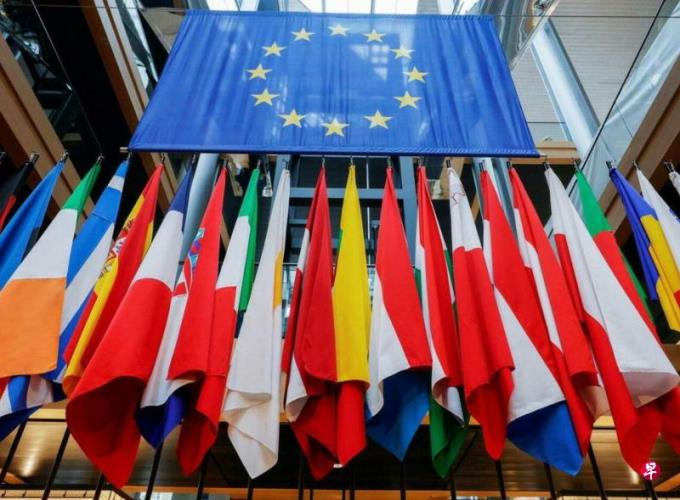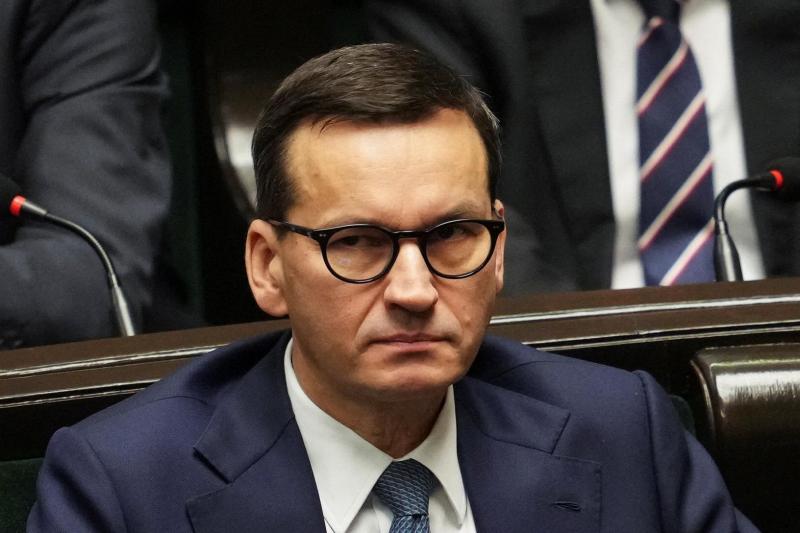
The Taiwan Ministry of Foreign Affairs issued a press release on Wednesday (February 7) that the case was a successful case for Taiwan's "first case to request foreign government to assist in the extradition of criminals in Taiwan."After the judicial cooperation agreement, the two sides deepened the specific display of judicial cooperation.
The extradited man named Liu was suspected of participating in a large -scale cyber fraud case in Spain and was issued by the International Interpol. He was arrested in Poland in 2017.Because the victims of the fraud case were mostly from mainland China. After the man named Liu was arrested, Beijing asked Poland to extradite the suspect to the mainland for trial.
After the European Human Rights Court agreed to the appeal request of the man named Liu, the Taiwan Ministry of Justice officially made an extradition request to Poland last February and was agreed by the Polish court in November of the same year.On January 15 this year, the man named Liu had been extradited to Taiwan.
The suspects of the Taiwan fraud case were arrested overseas. The Taiwan Strait Cross -Strait always "grabbed people". Because of its disparity, the mainland was often grabbed by the mainland. Beijing also reflected that the "one China" became a universal consensus in the international community.
Poland has diplomatic relations with mainland China. Agree with Taiwan's extradance of Taiwanese suspects to return to Taiwan, causing the outside world to pay attention to this move to step on a Chinese red line and cause Beijing to protest?Chinese Foreign Ministry spokesman Wang Wenbin did not answer positively on Thursday (8th) when he responded to questions from Agence France -Presse. He reiterated his "one China" position and reminded Poland to abide by the "one China principle" and carefully handle Taiwan -related issues.
Central and Eastern European countries are getting closer and closer to Taiwan?
The criminal judicial cooperation agreement signed by Poland and Taiwan took effect in 2021. The content includes cooperation matters such as the extradition of the defendant or the suspect, the obtained evidence, and the transfer of the prisoners.
This year, Central and Eastern European countries also began to collectively move closer to Taiwan in diplomacy.
Lithuania announced in 2021 that it would set up a trade representative office in Taiwan, and it also allowed Taiwan to set up a representative office named "Taiwan" in the Caluki capital of Lithuania. The follow -up also triggered a trade dispute between Lithuania and Beijing and Beijing and Beijing.Essence

In May 2021, Lithuania took the lead in withdrawing from the "17+1" cooperation mechanism jointly established by China and Central and Eastern European countries, and called on other members to withdraw and united to respond to Chinese challenges.Latvia and Estonia have also withdrawn from this cooperation mechanism the following year.
During the crown disease epidemic, Lithuania, Slovakia, Czech Republic and other countries donated hundreds of thousands of coronary vaccines to Taiwan to assist Taiwan in resistance.In April 2021, the Slovak Parliament ’s Foreign Council also voted to support Taiwan’ s participation in the World Health Conference (WHA) in April 2021.
The essential significance of these actions is not great, but it is enough to allow the DPP government to preach the effectiveness of the concept of "democracy and freedom" in the local area.
The assistant professor of the Department of International Relations of Taiwan Tamkang University Gregory Coutaz in 2022 bluntly said to the Voice of America: "If you tell me that there will be such a thing two years ago, I would say, thenIt is impossible to " General analysis that the European Union advocates risks in strategy to China, and the Trump and Bayeng government's toughened siege policies have more or less influenced BeijingEastern European countries formulate considerations when they formulate a strategy of China.
Andreea Brinza, Vice President of the Romanian Institute of Romanian Asia Pacific Institute, was interviewed by VOA in 2021 that China did not fulfill its economic commitments and also caused these countries to "have a sense of disillusionment" in China.
Data show that from 2000 to 2019, only less than $ 10 billion in China ’s investment in Europe’ s US $ 129 billion (about S $ 173.4 billion) has flowed into Central Eastern European countries.In contrast, Germany, Japan, South Korea and the United States are the largest investors in the Central and Eastern European regions.
Tang Yu'an wrote in the magazine of the Diplomat in February 2022 that mainland China failed to achieve a commitment to investment in Central and Eastern European countries, giving Taiwan an opportunity to expand its influence in the Central and Eastern European regions.
However, it is the war of aggression launched by Russia in February 2022 to further pull the gap between China and Central and Eastern European countries in February 2022.
Considering security strategy in Central and Eastern European countries
The Russian and Ukraine War The violent turbulence brought to the European security situation has made a strong sense of insecurity from Central and Eastern European countries closer to the front line of the war, and prompting these countries to rethink the direction of diplomatic and security policies.
In the Russian and Ukraine War, most Central and Eastern European countries strongly condemned Russia's invasion of Ukraine. While actively joining the US and European sanctions, they also provided military and humanitarian assistance to Ukraine.
Although the Beijing government has denied a pro -Russian position in the Russian and Ukraine War, China ’s ambiguous statement on the Russian and Ukraine War, including refusing to condemn Russia, insist on maintaining sovereignty, while emphasizing the need to take care of the reasonable and safety of various countriesConcerns and "unlimited" cooperative relationships with Russia have made many Central and Eastern European countries deeply disturbed, prompting them to move closer to the European Union and the United States in the field of diplomacy and security.
The Central and Eastern European affairs expert Blinza said that Central and Eastern European countries not only were disappointed with not condemning Russia's invasion in Beijing, "these countries are more interested in security guarantees provided by the United States instead of China, rather than China, instead of making China in China, not China, not China, not China.The empty economy commitment ".
Petr Tuma, a European center visiting scholar, wrote last June that in view of the history of the former Soviet Union, Central and Eastern European countries were more sensitive to threats from authoritarian regimes.
He said that Beijing's "obvious assistance" to Russia in the Russian and Ukraine War made Beijing and European countries more and more regard Beijing as a "new Russia" and "a correction that endangers the order of freedom and democracy world."Doctrine".
In April last year, when Poland's then Prime Minister Mateusz Morawiecki spoke at the event of the Atlantic Council, he warned Europe to deepen the danger of economic connection with mainland China.

Moravitzki compares Ukraine and Taiwan: "If you want to keep the status quo in Taiwan, you need to support Ukraine. If Ukraine is occupied, the next day, China can be possible in China."Fighting Taiwan" Institute of International Republican Institute of the US Think Tank conducted public opinion investigations on people in 13 Central and Eastern European countries last January.The survey results show that 61%of the respondents have a negative view of China, and 34%of the respondents have worsened China in the past 12 months.Among these 34%of the respondents, 66%believe that the partnership between China and Russia is the biggest reason for their worsening view of China.
The survey also showed that 40 % of the respondents believed that China supported Russia's invasion of Ukraine.
Zhang Jian, director of the European Institute of the China Institute of Modern International Relations in April 2022, wrote an analysis that the Russian and Ukraine conflict further increased the geopolitical tendencies of pro -American and pro -European European European and European European countries.The "constructive power of constructive power into a negative power" played from the past in China -Europe relations.
Whether it is playing constructive power or negative power, it is a strategic choice made by Central and Eastern European countries based on practical considerations such as security, science and technology development, and economy.It is only for Central and Eastern European countries, the consideration of security and scientific and technological development is particularly important in the current international situation, and Taiwan is a more valuable partner under these considerations.
However, the evolution of the international situation is dynamic rather than static. Once the above factors are no longer prioritized, will Central and Eastern European countries re -take closer to Beijing because of the actual interests of the economy?Is the "Democratic Freedom Foreign Diplomacy" emphasized?
These questions still need time to give the answer, but it is certain that mainland China may not calm down Taiwan with the Central and Eastern European regions as a fulcrum to continue to deepen the relationship with European countries.




